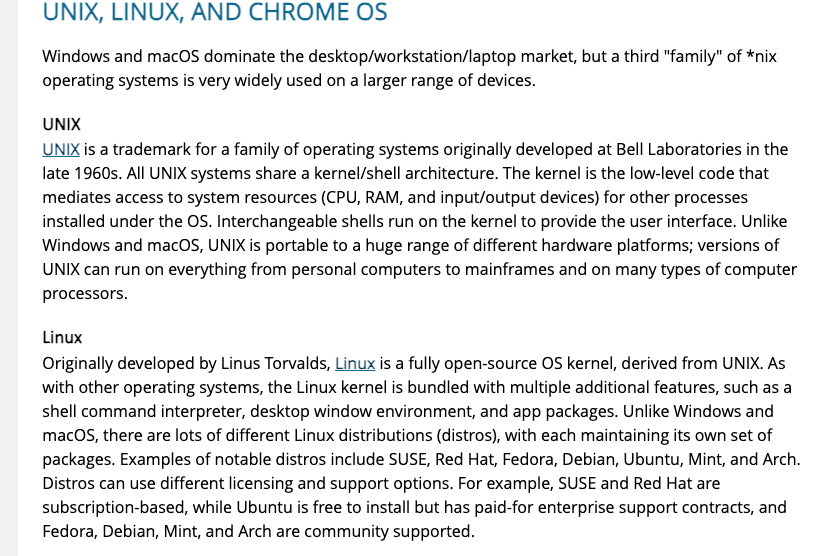What are the key differences between UNIX and Linux operating systems?

Understand the Problem
The question is about understanding the differences and characteristics of UNIX and Linux operating systems, as well as their historical development and applicability across various hardware platforms.
Answer
Linux is portable and free; UNIX is proprietary and less portable.
Key differences between UNIX and Linux include portability, licensing, and user interface. Linux is portable, open-source, and free, whereas UNIX is proprietary, less portable, and often requires a license. Linux also supports a GUI, whereas UNIX primarily uses a CLI.
Answer for screen readers
Key differences between UNIX and Linux include portability, licensing, and user interface. Linux is portable, open-source, and free, whereas UNIX is proprietary, less portable, and often requires a license. Linux also supports a GUI, whereas UNIX primarily uses a CLI.
More Information
UNIX was developed in the 1960s and is a trademarked system, whereas Linux, developed in the 1990s by Linus Torvalds, has become a popular open-source alternative.
Tips
A common mistake is assuming Linux and UNIX are the same due to their similar architectures, but differences in licensing and portability are significant.
Sources
- Unix vs Linux – Difference between Unix and Linux - binhminhitc.com
- Difference between Unix and Linux - GeeksforGeeks - geeksforgeeks.org
- Unix vs. Linux Comparison Guide - Coursera - coursera.org
AI-generated content may contain errors. Please verify critical information